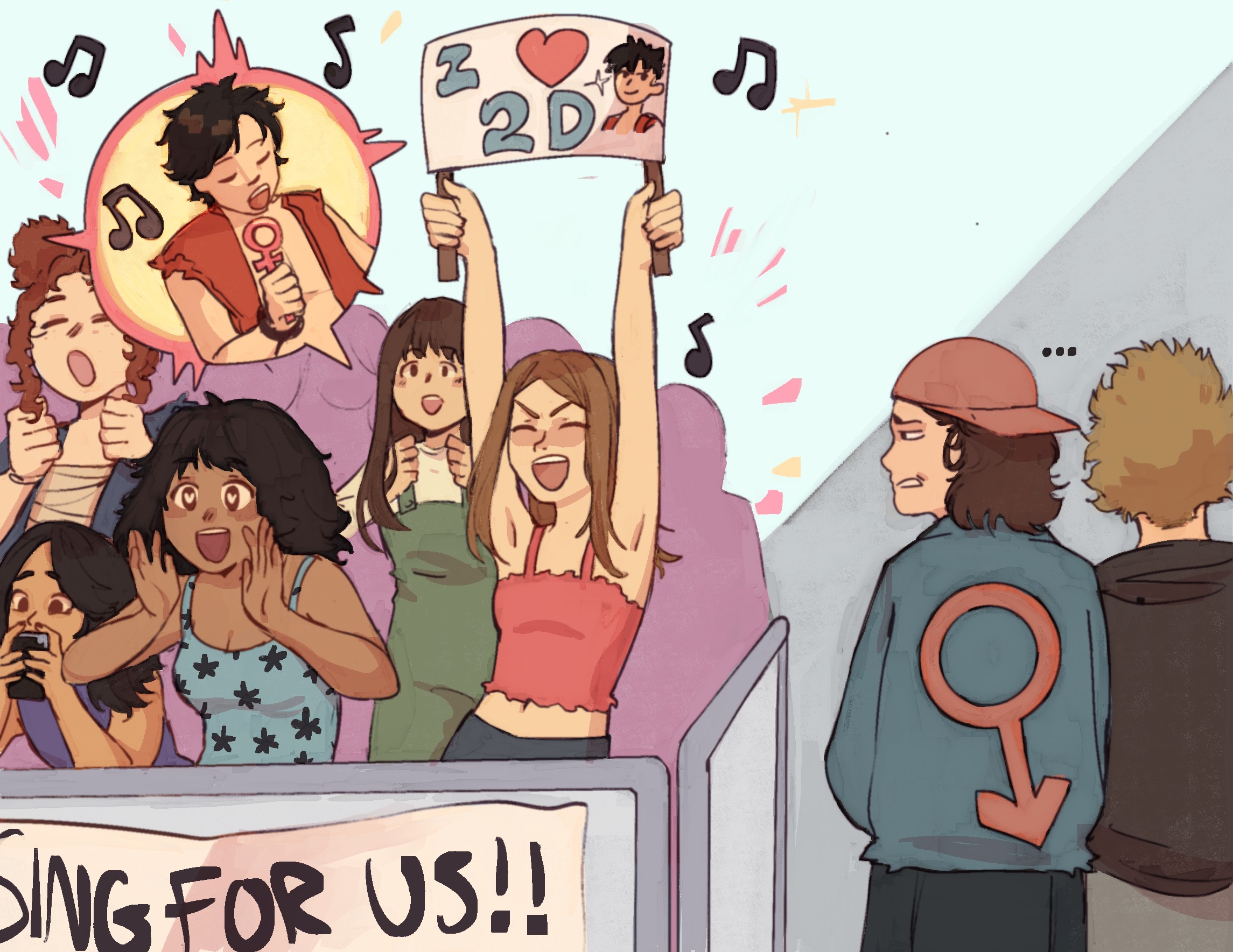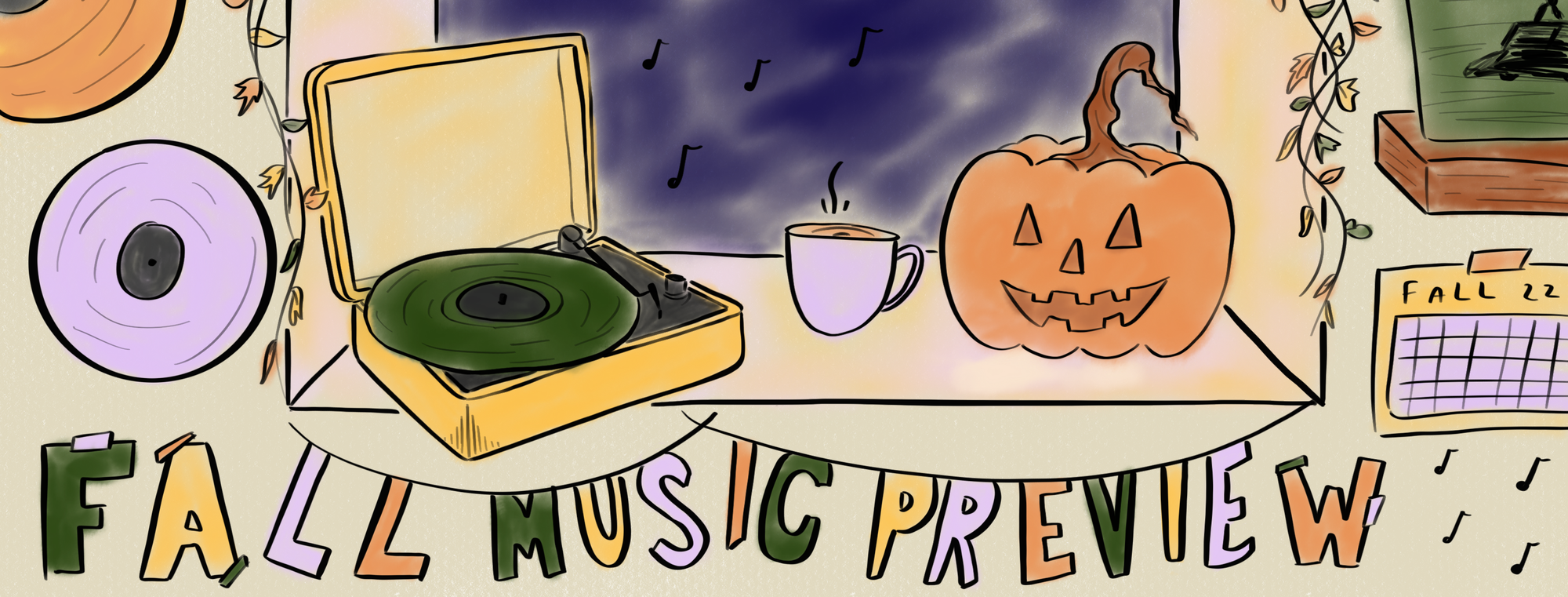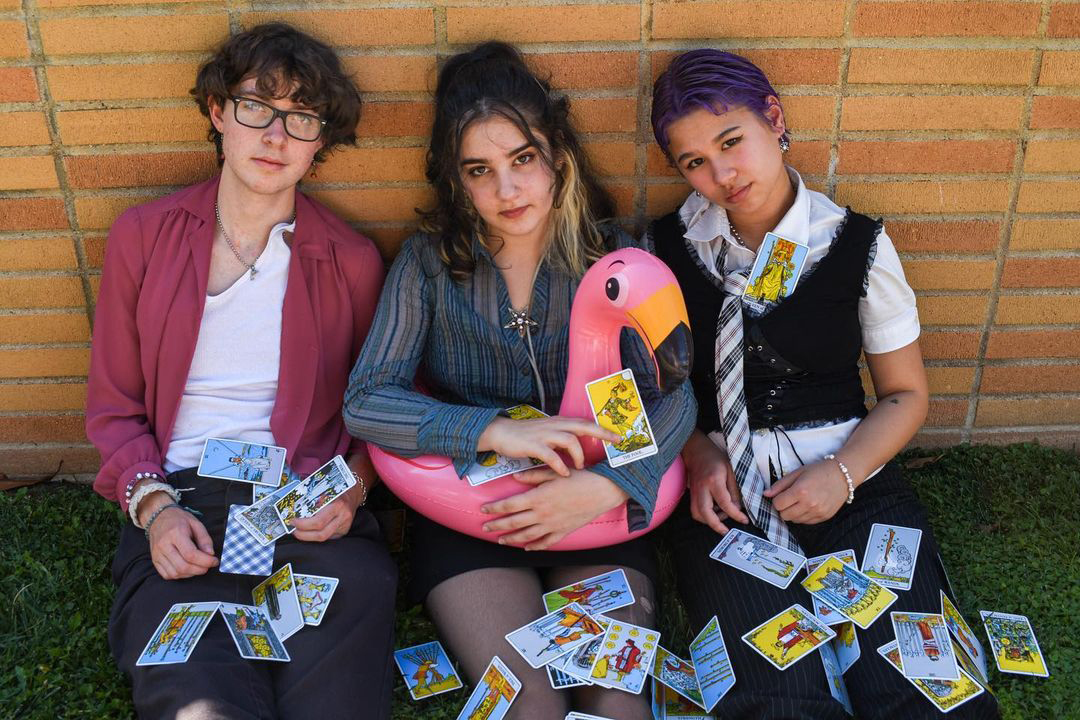Second Take: Young, female fan bases face undeserved scrutiny for music taste

(Anna Richardson/Daily Bruin)

By Talia Sajor
Nov. 13, 2022 9:41 p.m.
Despite being the cornerstone of the music industry for generations, teenage girls continue to be demeaned for their listening choices.
Defined as “a girl or woman who is an extremely or overly enthusiastic fan of someone or something,” the term “fangirl” has spread across multiple forms of media, such as movies, television shows, books and most notoriously, music. Many artists who begin with a fan base made up of such “fangirls,” including One Direction, Justin Bieber and 5 Seconds of Summer lose respect as musicians because of society’s misogynistic view of teenage female fan bases and stigmas surrounding such artists.
[Related: Second Take: Demand for constant reinvention from female artists creates double standard]
Considering The Beatles’ prolific career throughout media and Baz Luhrmann’s recent biopic highlighting the everlasting legacy of Elvis Presley, it is clear that these artists became some of the biggest and most respectable names within the music industry, with fans spanning across various demographics. However, many seem to forget that these artists started off similarly to many modern artists who have fallen victim to claims of being invalid musicians.
Despite much debate over the topic, The Beatles – composed of George Harrison, Ringo Starr, Paul McCartney and John Lennon – is the prime example of a boy band. Many listeners, especially older generations, refer to the Liverpool group as a rock band, despite the similarities between the band and the same musicians they look down on today.
The controversy over the labeling of The Beatles as a boy band can only be attributed to the stigma surrounding the term that was popularized in the ’90s and continues to be spewed today. Given the name “boy band,” it makes sense for the term be applied to any band that is made up of all boys. Yet, as seen throughout music history, the term has adopted a heavily negative connotation for bands that are not taken seriously as musical groups.
Other examples of this term can also be seen in the ’90s and ’00s with NSYNC and the Backstreet Boys, which carried on into the early 2010s with Big Time Rush and One Direction. One of the most staggering similarities between all of these bands is that their fan bases are mostly composed of a younger female population.
The same discrediting of groups can be applied to solo acts such as Justin Bieber. Society credits these artists’ successes to their appearances because of the superficial view of screaming, hyperventilating teenagers, rather than women who are simply enjoying their music.
One of the most common arguments supporting this is that all of these artists are not “real” musicians because of their lack of original songwriting and an inability to play instruments. They were also infamously known as “industry plants,” rising artists who are groomed by a major label and can only sing and dance, preventing them from establishing their own musical identity. Yet, with the case of Australian pop-rock band 5SOS, that argument is simply not the case.
Having opened for One Direction during its “Take Me Home,” “Where We Are” and “On the Road Again” tours, it was inevitable that One Direction’s heavily populated teenage girl fan base would bleed into 5SOS. Despite 5SOS’s edgier look and sound in 2015, with band members’ ripped skinny jeans, piercings, dyed hair, and their most discernible characteristic, playing their own instruments, the band was still given the same treatment.
[Related: Second Take: Behind the scenes of the K-pop industry lies a darker reality]
The band later collaborated with notable figures within the male-dominated pop-punk scene, such as All Time Low, Black Veil Brides and writer-producer John Feldmann. Lead man Luke Hemmings performed at the famed Vans Warped Tour. All of this should have given 5SOS a higher status within the genre and garnered more male fans. Yet, it did not.
5SOS continuously fought to stray away from the label of boy band that continued to permeate its stories within the media solely because of the stigmatization of the title. Although 5SOS did not fit the typical convention of a boy band, the band’s reputation all came down to the audience that its music attracted, which inevitably reflected its worth as a band.
Ultimately, despite the type of music an artist creates, history has shown that their reputation in the industry comes down to the demographic of their fan base. In fact, the artists who start out performing in front of thousands of screaming girls are often the ones who become the most well known. Take The Beatles, Elvis, and more recently, Harry Styles: All have the same beginnings and have built a respectable career once they surpassed crowds that extended beyond teenage girls.
Instead of being discredited for their actions, fangirls should be commended for being the one demographic that can predict the next big name in the industry and get any artist off the ground by boosting their social media presence and selling out concert venues. The fact that musicians are subjected to scrutiny and ridicule merely because of their target audiences, and more importantly, the fact that their fans are invalidated for their music taste given their age and gender, is baseless and a classic example of misogyny that permeates the entertainment world.
Instead of being viewed as mere examples of female hysteria, teenage fangirls should instead be seen a group of the most dedicated and loyal supporters to exist.






